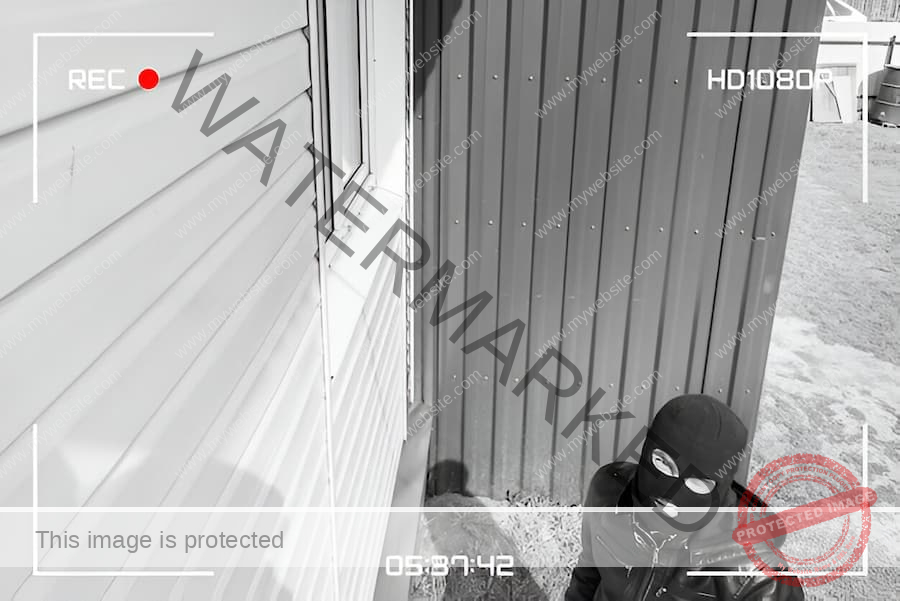Introduction
Safeguarding your home, business, or property is more important than ever in a time when security concerns are growingly complex and prevalent. Among the most commonly used security technologies now are CCTV (Closed-Circuit Television) systems and intruder alarms. Every one of these has a particular use and its own advantages and drawbacks. Many people and companies are confused with the decision between them. Should you depend on the visual monitoring power of a CCTV system, or the quick-response capabilities of an intruder alarm? Maybe a combination of both as well? This article provides a thorough investigation of both systems to assist you in deciding which is most appropriate for your particular requirements.
Installation and Maintenance
Usually, intruder alarm installation is less complex than configuring a CCTV system. Especially in smaller homes, wireless intruder alarms can sometimes be put in place without expert assistance. They need a control unit, door/window sensors, and appropriate positioning of motion detectors. Maintaining usually means periodically testing the alarm and checking sensor batteries to make sure it operates properly.
By contrast, CCTV systems call for meticulous camera placement planning to guarantee best coverage. While wireless systems still require consistent network connections and power sources, wired systems could call for cable routing through ceilings and walls. To keep clear footage, cameras have to be cleaned often; the recording device—whether digital or network-based—needs adequate storage and software upgrades. Maintaining is more difficult than setting off alarms.
Impact on Criminal Behavior
Both systems have psychological and practical consequences when it comes to discouraging criminal behaviour. CCTV cameras may discourage criminal activity before it happens by acting as a visible warning that the property is under surveillance. For opportunistic thieves, the awareness that they are being watched and maybe recorded can be a major deterrent.
On the other hand, intruder alarms are effective the instant an intrusion takes place. A siren’s sudden noise or flashing lights could shock the burglar and drive them to run before they finish their planned deed. Although they do not stop the breach itself, they usually reduce the length and scope of the crime. Therefore, intruder alarms are more reactive and CCTV is more preventive.
Response Time and Monitoring
Intruder alarms offer instant notifications. The system activates immediately when a sensor is activated, either by sounding an alarm or alerting a monitoring centre. For time-sensitive scenarios, this quick reaction is particularly beneficial since fast intervention can stop damage or theft.
Unless watched in real-time, CCTV systems do not offer instant reactions. Although they can be fitted with motion detection to identify suspicious activity, they usually need human supervision for active intervention. A crime could go unnoticed until after it has happened without anyone monitoring the video. An alarm system might be more appropriate, thus if your goal is to act right away during an incursion.
Cost and Budget Considerations
Every system’s financial commitment can be quite different. Especially for simple versions without need for monitoring, intruder alarm systems are usually more reasonably priced up front. On the other hand, choosing a professional monitoring service could result in monthly charges that increase the long-term expense.
Usually, CCTV systems call for more initial outlay. Costs can be increased by professional installation, storage devices, and high-definition cameras. Systems with cloud storage or smart features could also incur ongoing subscription costs. Though the extra functionality might warrant the cost for many users, the total cost of a CCTV system may eventually exceed that of a conventional alarm system.
Legal and Privacy Aspects
Important legal issues to remember arise when installing CCTV, particularly in shared or public spaces. Your area will determine whether you need to show signs saying recording is happening; you also have to follow data protection rules on the storage and use of video material. This is especially true in offices, apartment complexes, or any place where privacy expectations exist.
Because they do not record or keep personal data, intruder alarms usually escape the same legal examination. They serve only functional goals and offer no privacy concern. From a compliance point of view, this makes them a more straightforward choice.
Smart Integration Capabilities
Modern security technologies sometimes go well with smart home systems. Smartphone apps allow users to arm or disarm intruder alarms remotely and can provide real-time notifications to their mobile device. For more extra automation, certain systems can even connect with smart locks or lighting controls.
Smart integration helps CCTV systems as well. Many can stream live footage to mobile devices, use artificial intelligence to distinguish between people, cars, and animals, and upload recordings to cloud-based storage for safe access. These combinations greatly improve the efficiency and simplicity of both types of systems.
Choosing Based on Property Type
Often, the type of property being protected will determine whether to install a CCTV system or an intruder alarm. Especially if the neighbourhood has low crime rates, a burglar alarm might be enough for standard residential homes. On the other hand, houses with large yards, detached garages, or high-value goods might gain from the extra monitoring offered by CCTV.
In corporate settings, the mix of both systems is usually perfect. For instance, retail stores use CCTV to stop shoplifting during business hours; intruder alarms safeguard the property after closing. Often used for monitoring and audits in warehouses and office buildings, CCTV is used in conjunction with alarms for perimeter security.
Intruder alarms with cellular notifications can be very effective for remote or rural properties where law enforcement may take longer to respond. In such areas, CCTV might be restricted because of internet connection problems; however, certain systems provide offline recording capabilities.
Conclusion
In conclusion, your particular requirements, priorities, and budget will guide you in choosing between a CCTV system and an intruder alarm. An intruder alarm is probably the better option if your main worry is preventing thieves and getting instant notifications. A CCTV system might be more suitable if you appreciate the capacity to track, examine, and document activity on your property.
On the other hand, if you need strong protection and have the means, using both approaches provides the most consistent coverage. Whether you go this route or another, spending on security is always a smart choice since peace of mind is priceless.
Visit Manhwa for more informative blogs.

